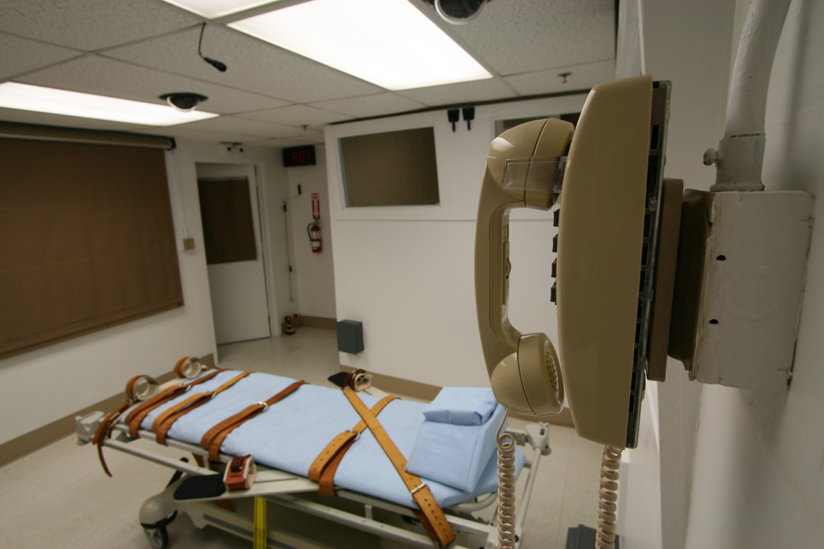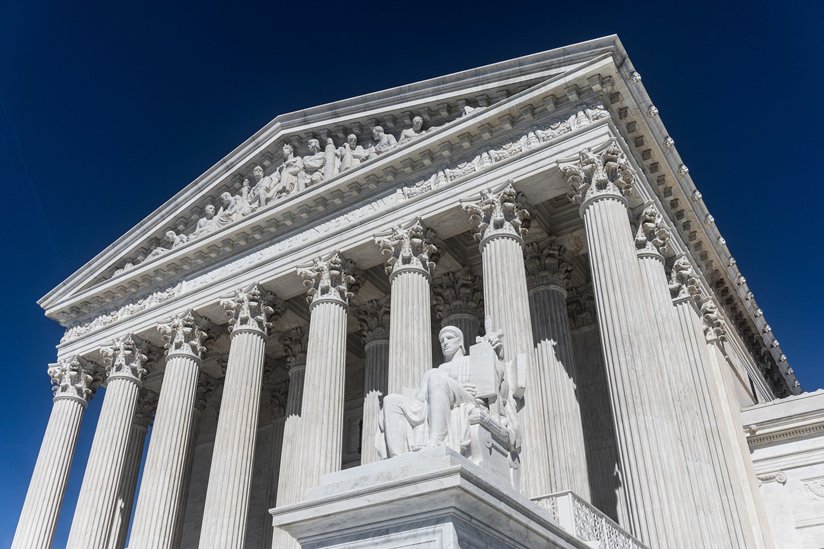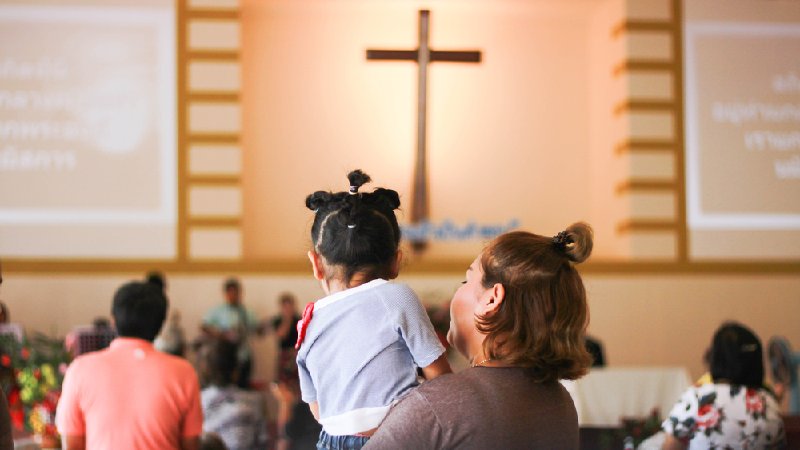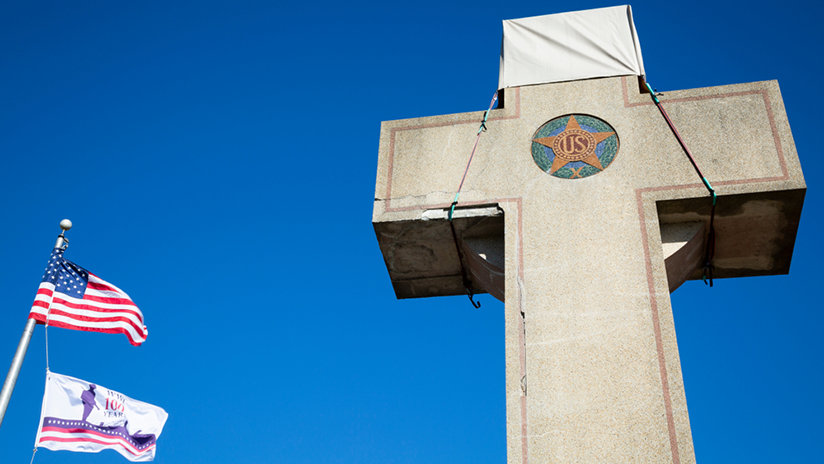
-
HOME
-
WHAT IS STANDOur Mission Our Values Our Help Contact
-
WHAT WE FIGHT FORReligious Freedom Religious Literacy Equality & Human Rights Inclusion & Respect Free Speech Responsible Journalism Corporate Accountability
-
RESOURCESExpert Studies Landmark Decisions White Papers FAQs David Miscavige Religious Freedom Resource Center Freedom of Religion & Human Rights Topic Index Priest-Penitent Privilege Islamophobia
-
HATE MONITORBiased Media Propagandists Hatemongers False Experts Hate Monitor Blog
-
NEWSROOMNews Media Watch Videos Blog
-
TAKE ACTIONCombat Hate & Discrimination Champion Freedom of Religion Demand Accountability
U.S. Supreme Court Ignores Religious Freedom in Death Penalty Case
The case seems simple at first. Dominique Hakim Marcelle Ray was convicted in 1995 of the rape and murder of a 15-year-old girl and sentenced to death. Ray subsequently converted to Islam in 2006 while incarcerated.
The death sentence was to be carried out February 7, 2019, in Holman Correctional Facility in Atmore, Alabama. On January 28, Ray appealed for a number of accommodations including a stay of execution, the use of gas instead of lethal injection, and to have his Muslim “private spiritual advisor” present during the execution. U.S. District Judge Keith Watkins denied most of the requests, stating: “The state has never allowed an inmate’s private spiritual advisor to be inside the chamber during the execution, regardless of the private spiritual advisor’s affiliation.”

The state had, however, in all previous executions, required the prison’s Christian chaplain—who is also a trained member of the execution team—to be present in the execution chamber.
The 11th U.S. Court of Appeals on February 6, 2019, stayed the execution, with Judge Marcus writing for a three-judge panel: “Ray alleges that Alabama’s practice of requiring a Christian chaplain in the execution chamber, while forbidding clerics of other faiths, violates the Establishment Clause of the First Amendment.”
The State finally agreed that the Christian chaplain would not be present during the execution, but refused to allow Ray’s Imam to be in the execution chamber, because the Imam was: “…a non-ADOC employee, someone unfamiliar with the execution process and with the practices and safety concerns of the prison…”
One may not just ignore the First Amendment because of time considerations.
The Court of Appeals rejected the lower court’s “refusal to grant an emergency stay in the face of what we see as a powerful Establishment Clause claim. Because Ray has demonstrated a substantial likelihood of success on the Establishment Clause,” said the Court of Appeals, “and because the other equitable factors tip in his favor, Ray’s emergency motion for stay is granted. We direct the Clerk of Court to expedite the appeal of Ray’s case so that we may promptly address and resolve these claims.”
But the U.S. Supreme Court lifted the stay of execution on a 5-4 vote in favor of the State, on the basis that the appeal—coming less than two weeks before the execution date—was too late.
Justices Elena Kagan, Ruth Bader Ginsburg, Stephen Breyer and Sonia Sotomayor dissented. In the dissenting opinion, Justice Kagan wrote: “Under [the State of Alabama’s] policy, a Christian prisoner may have a minister of his own faith accompany him into the execution chamber to say his last rites. But if an inmate practices a different religion—whether Islam, Judaism, or any other—he may not die with a minister of his own faith by his side. That treatment goes against the Establishment Clause’s core principle of denominational neutrality.”

One may not just ignore the First Amendment because of time considerations, by saying that the Imam could sit in the viewing area behind glass but not in the death chamber, by saying the Imam is not a staff member, or trained, by citing the severity of the crime or any other consideration the Alabama State Department of Corrections raised. And the Supreme Court made a bad judgment in the case. Many prisons have training for religious leaders so they can tend to inmates’ needs. Requiring Alabama’s Department of Corrections to institute such a program would have been one simple solution.
In a recent survey of prison chaplains by the Pew Research Center’s Forum on Religion & Public Life, chaplains of all faiths said that religious instruction is important for long-term rehabilitation of inmates and prisoners, but some expressed reservations about religious extremism in faiths other than their own. Perhaps that may explain the preference granted to Christianity, but who knows?
Supreme Court decisions are meant to stand the test of time, hewn of immutable bedrock, the building blocks of justice, an assurance that right will prevail over human prejudice and expediency. We’ve had stupid Supreme Court decisions in the past: the Dred Scott decision that ruled African Americans could not become citizens, and the decision to intern Japanese Americans. Both these decisions bowed to prejudice and expediency rather than the Constitution.
The Establishment Clause of the Constitution seems fairly clear: “Congress shall make no law respecting an establishment of religion, or prohibiting the free exercise thereof…” You don’t need a law degree to interpret those words or apply them to the Ray case. So amid the marble building blocks of justice, we have this decision sitting like a child’s plastic alphabet block, an anomaly that I hope will disappear as our country honors the rule of law and puts away childish things.









